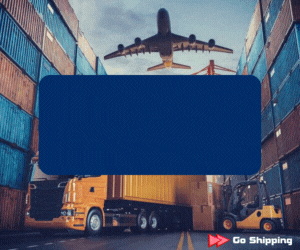Port of Amsterdam set a new transhipment record in 2019 with transhipment totalling 86.3 million tonnes, compared to 82.3 million tonnes in 2018. This represents a 6% increase. Together with the other ports in the North Sea Canal Area, total transhipment reached 105 million tonnes in 2019, compared to 101.8 million tonnes in the previous year.
Transhipment in IJmuiden fell by 7.9% to 17.2 million tonnes, while Beverwijk and Zaanstad saw transhipment stabilise at 0.7 million tonnes and 0.2 million tonnes, respectively. This is revealed in the provisional transhipment figures announced today.
Large increases
The record set in the port of Amsterdam in the previous year is primarily attributable to an 18% increase in the transhipment of energy products, such as coal, to 15.5 million tonnes, compared to 13.1 million tonnes in 2018. The increase in coal transhipment can be attributed to market conditions, which led to strong growth in exports to non-traditional markets such as Asia and the Black Sea region. This growth is not expected to be structural. The closure of the Amsterdam-based Hemweg power plant 8 in December resulted in the cancellation of a large coal transaction. The transhipment of oil products also rose in 2019 to 50 million tonnes, compared to 47.4 million in 2018. This increase was caused by favourable conditions in the petrol market.
Other dry bulk also increased by 6% - a substantial growth - to 33.6 million tonnes, compared to 31.6 million tonnes in 2018. Container transhipment also increased by 12% and transhipment in Ro-Ro rose by 17%. Transhipment of chemical products and construction materials rose by 3.4% and 2.4%, respectively.
Large decreases
These records were also offset by decreases. The agri cargo flow fell in the previous year by 5% to 7.9 million tonnes and general cargo fell by 35% compared to 2018.
Cruise calls
Amsterdam received 117 seagoing cruise ships in 2019, compared to the previous year’s 180. The main reason for this decrease is due to the introduction of the tourist tax, which entered into force on 1 January 2018. The number of seagoing cruise ships that will be visiting Amsterdam in 2020 is expected to remain the same as last year; 12 of the cruise ships will be coming to the city for the first time. The number of sea cruise passengers fell to 294,000 compared to 425,000 in the year prior. The number of seagoing cruise ships visiting IJmuiden increased to 62 from the previous year’s 30. The number of river cruise ships that called in 2019 was 2,282, compared to 2,007 a year earlier.
Imports and exports
Imports in the port of Amsterdam increased by 5.7% in the previous year to 53.2 million tonnes. Exports grew by 5.5% to 33.6 million tonnes.
Leased-out land
A total of 20 hectares of land was leased out in 2019, compared to 43 hectares in 2018. Large parcels of land were leased out to Granuband and the 5.7-hectare distribution centre at the Conakryweg. Port of Amsterdam also purchased a 6-hectare lot in HoogTij in 2019, after having purchased 10 hectares in 2016.







